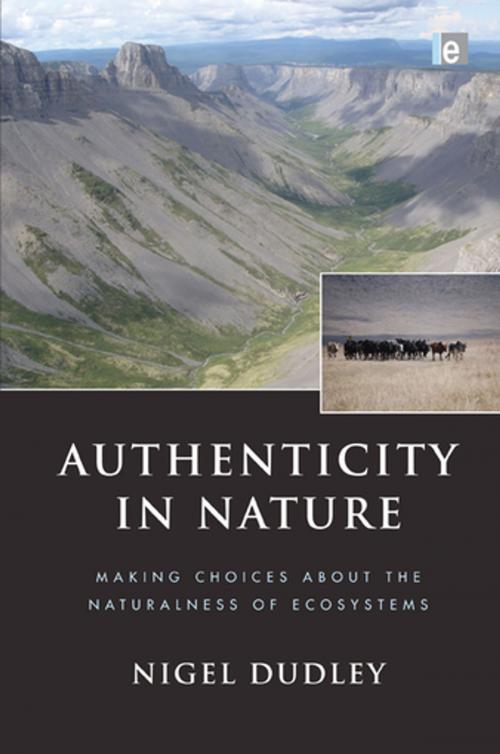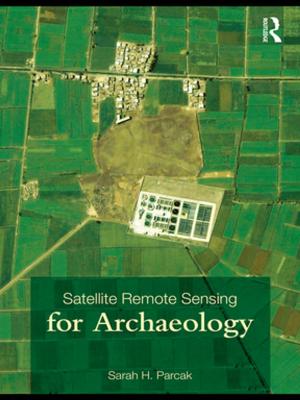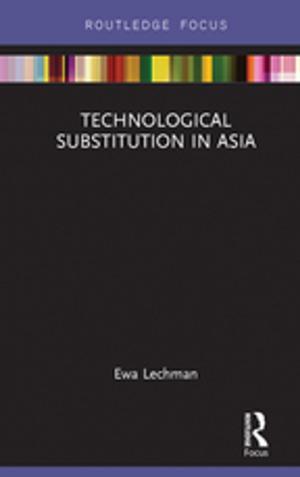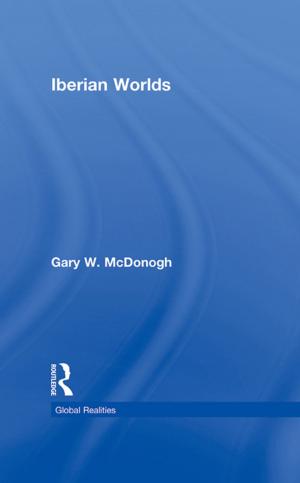Authenticity in Nature
Making Choices about the Naturalness of Ecosystems
Nonfiction, Science & Nature, Nature, Environment, Environmental Conservation & Protection| Author: | Nigel Dudley | ISBN: | 9781136472558 |
| Publisher: | Taylor and Francis | Publication: | March 12, 2012 |
| Imprint: | Routledge | Language: | English |
| Author: | Nigel Dudley |
| ISBN: | 9781136472558 |
| Publisher: | Taylor and Francis |
| Publication: | March 12, 2012 |
| Imprint: | Routledge |
| Language: | English |
This book examines the concept of naturalness in ecosystems, discusses its values and considers choices about the level of naturalness in conservation efforts. The author argues that all ecosystems have been modified and the idea of places 'untouched by humans' is a myth. But there are large differences in the degree of modification and levels of naturalness which can be identified. Changes are not always irreversible; some apparent wilderness areas are sites of former civilizations. There is no longer any simple distinction possible between 'natural' and 'cultural' systems. In the future, society will, to some extent, choose the degree of naturalness in land and seascapes. The growth of protected areas is an early sign of this, as are changes in forest management, dam removal and control of invasive species. To make informed choices about these areas, the author shows that we must understand the characteristics and values of naturally regulating ecosystems – their practical benefits, social values and management needs.
Authenticity in Nature uses a rigorous definition of authenticity to help in the understanding and measurement of naturalness. It discusses the choices facing us and some of the information we need to make decisions relating to land and water management. Practical issues of management and numerous terrestrial and aquatic examples from around the world are discussed. It is an optimistic and highly original book, aiming to make genuine advances in our understanding and management of natural systems.
This book examines the concept of naturalness in ecosystems, discusses its values and considers choices about the level of naturalness in conservation efforts. The author argues that all ecosystems have been modified and the idea of places 'untouched by humans' is a myth. But there are large differences in the degree of modification and levels of naturalness which can be identified. Changes are not always irreversible; some apparent wilderness areas are sites of former civilizations. There is no longer any simple distinction possible between 'natural' and 'cultural' systems. In the future, society will, to some extent, choose the degree of naturalness in land and seascapes. The growth of protected areas is an early sign of this, as are changes in forest management, dam removal and control of invasive species. To make informed choices about these areas, the author shows that we must understand the characteristics and values of naturally regulating ecosystems – their practical benefits, social values and management needs.
Authenticity in Nature uses a rigorous definition of authenticity to help in the understanding and measurement of naturalness. It discusses the choices facing us and some of the information we need to make decisions relating to land and water management. Practical issues of management and numerous terrestrial and aquatic examples from around the world are discussed. It is an optimistic and highly original book, aiming to make genuine advances in our understanding and management of natural systems.















